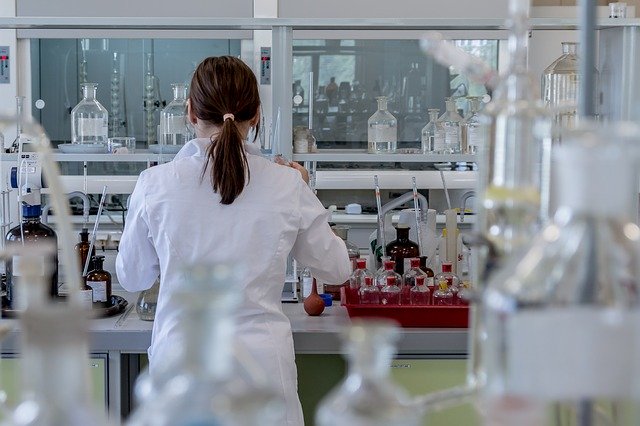B.Sc. (Hons.) Chemistry is a program that is designed to shed light on almost every aspect of chemistry. This course focuses on the study of properties and composition of matter, atomic structure, thermodynamics, organic chemistry, inorganic chemistry, chemical bonding, electrochemistry, quantum mechanics, spectroscopy, computer applications in chemistry, chemical analysis, coordination chemistry, environmental and biochemistry. A lucrative career option B. Sc in Chemistry degree lays a strong foundation for plenty of job opportunities in the field of research and development, petroleum and chemical industries, chemical laboratories, clinical researches, public health and environmental protection sectors, pharmaceuticals and so on.
Have a look at some interesting career options that you can explore after pursuing B.Sc (Hons) Chemistry:

1) Clinical Research Specialist: The role of a clinical research specialist is to plan, strategize organize, execute and coordinate various clinical research projects. The projects may involve the development of new drugs to combat health issues, testing, quality control, and production.
2) Chemist: Chemists work in labs and conduct research on environment-related questions and test hypotheses with experiments, qualitative and quantitative experiments on chemical substances to ensure the quality of the existing products and develop new products. The chemists are also responsible for numerous tests and use various techniques to conduct experiments on organic and inorganic compounds.
3) Lecturer: A career as a lecturer is also an interesting option for many graduates. Students can opt for a Masters or PhD to increase their knowledge and eventually take part in research papers, lead research groups and start their career as a lecturer at universities (private or government).
4) Biochemist: Biochemist is involved in the study of chemical composition and physical principles of living organisms such as biological processes, growth, disease, genes, cell development, and other factors. Clinical biochemists are a part of the hospital medical team and are duly responsible for investigating and diagnosing patient’s illnesses.
5) Clinical Geneticist: A clinical geneticist analyses and evaluates patients with genetic diseases and disorders. This information is further used to make discoveries and development in the field of medicine and agriculture. A clinical geneticist must be observant, have problem-solving skills, possess strong management and technical skills and hands-on knowledge of genetic software.
An undergraduate degree in B.Sc Chemistry will give students in-depth knowledge, practical exposure, challenge their critical-thinking skills and prepare them for a professional career ahead. Therefore, B.Sc Chemistry is the perfect choice for students who have a passion for chemicals and want to delve deeper into this field.



